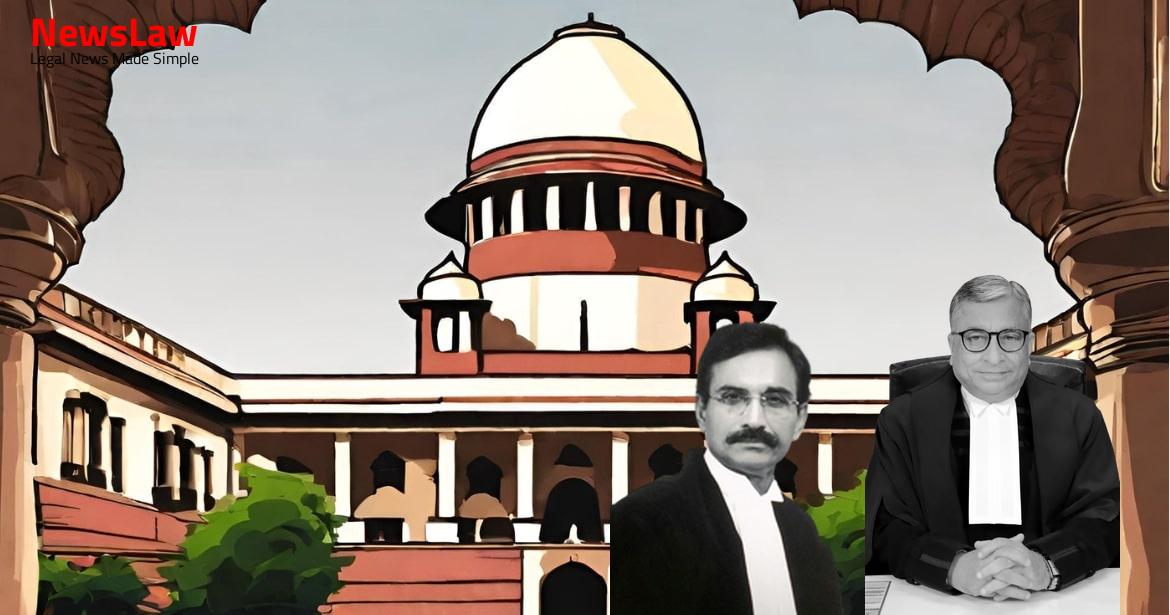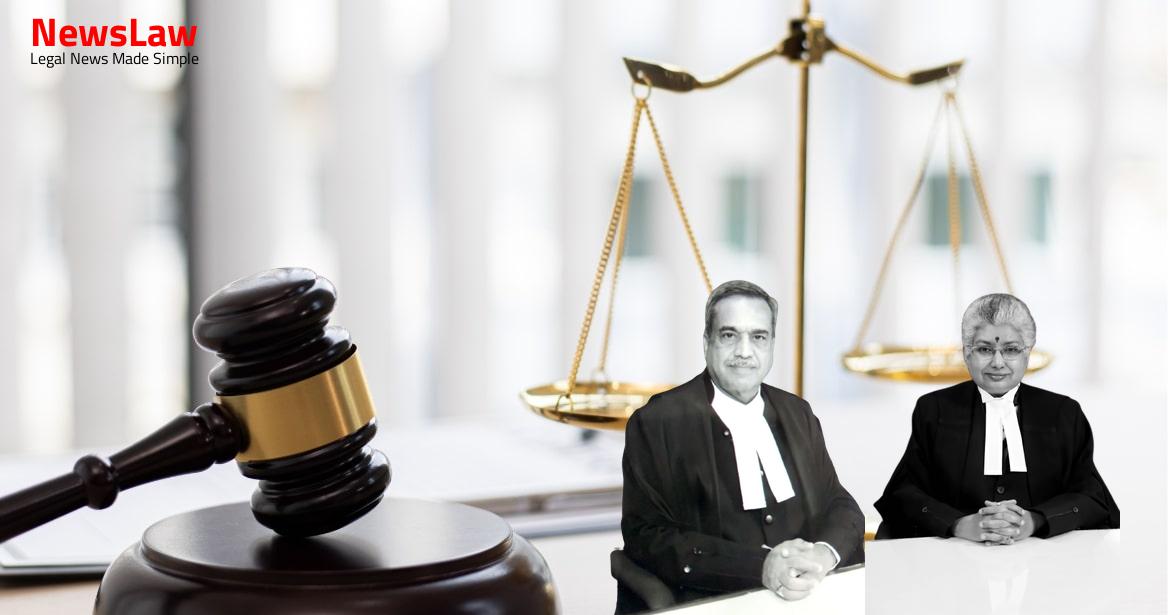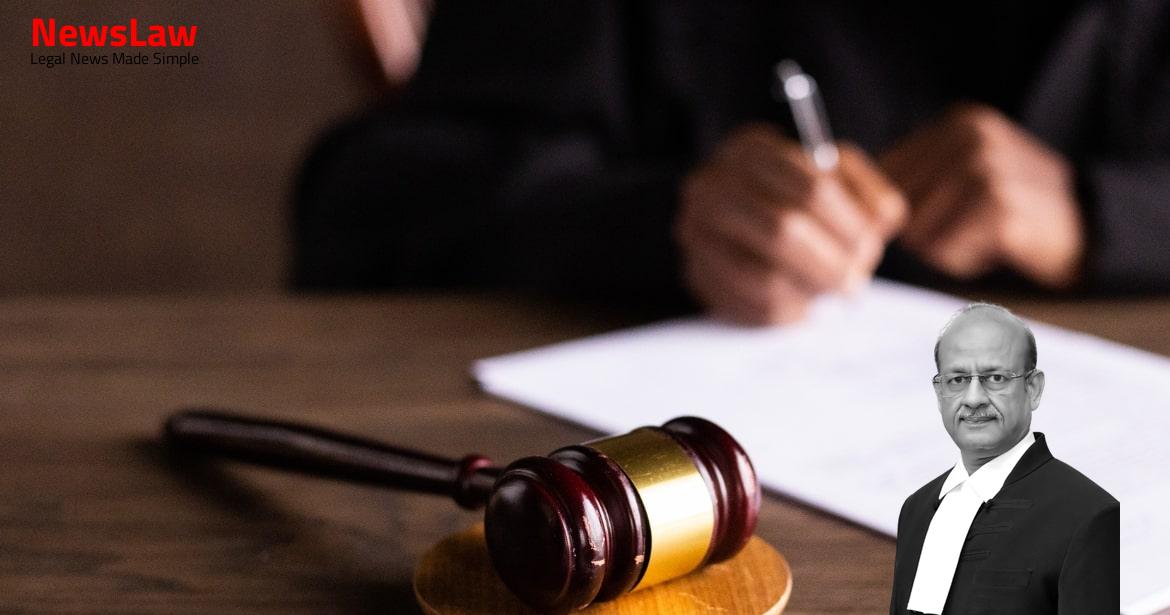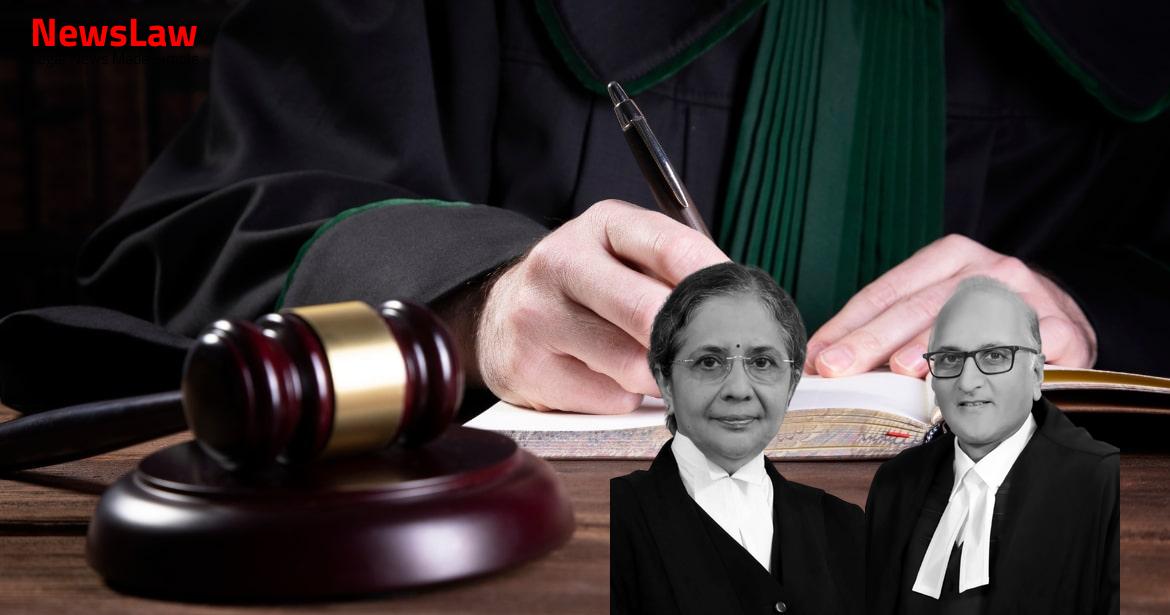Explore the legal intricacies surrounding the case focusing on the court’s analysis of maintaining merit-based admissions in the field of medical education. The court’s assessment emphasizes the significance of centralized admissions to promote fairness and equal opportunities for all students seeking to pursue medical studies. Follow along to delve into the complexities of the legal framework governing educational admissions.
Facts
- Review petitioners filed writ petition before Allahabad High Court challenging MCI’s order dated 27.1.2017.
- Original writ petitioners conducted private counselling despite State’s notifications for common counselling.
- Students filed petitions for special leave to appeal against MCI’s discharge order in SLP(C) No. 28886 of 2016.
- Glocal University challenged State notifications and MCI’s discharge order in different petitions.
- Court allowed review petitioners to be heard in open court after examining review petitions.
- Review petitioners had qualified NEET 2016 and became eligible for MBBS admissions.
- State of Uttar Pradesh issued directives for centralized counselling and reservation in private institutions.
- Allahabad High Court disposed of writ petition with liberty to approach Supreme Court.
- MCI directed discharge of students admitted by Glocal Medical College, leading to review petitions.
- Review petitioners sought review of SC’s order dismissing Special Leave Petition Nos. 31037-31038 of 2016.
- Review petitioners filed Writ Petition No. 1287 of 2019 challenging discharge order, dismissed with liberty to intervene in ongoing SLPs.
- Glocal Medical College also challenged MCI’s order in SC via Writ Petition No. 411 of 2017.
- SC allowed students admitted as per permission for 2016-2017 to continue studies in Glocal Medical College.
- Review petitions filed seeking review of SC’s dismissal of SLP Nos. 31037-31038 of 2016 and intervention application.
- Students cleared First Year MBBS examination but faced issues with Second Year exams and classes, leading to filing of Writ Petition No. 19399 of 2019 before Allahabad High Court.
- Petitions were decided on 15.9.2016 by the Division Bench of the Allahabad High Court
- The order dated 15.9.2016 passed by the Division Bench was challenged by the original writ petitioners before this Court through Special Leave Petition (Civil) Nos. 31037-31038 of 2016
Also Read: Presumption of Genuine Endorsements in Cheque Case
Arguments
- Review petitioners admitted through counselling by Glocal Medical College.
- MCI and State of Uttar Pradesh argue that review petitioners were admitted by backdoor entry.
- Allegations of collusion between Glocal Medical College and review petitioners.
- Review petitioners have cleared 1 year and 2 year examinations.
- Arguments presented by Shri Neeraj Kishan Kaul, learned Senior Counsel for review petitioners, against the admissions process.
- Counsel for MCI and State of Uttar Pradesh present counterarguments.
- Reference to Notification dated 22.8.2016 highlighting the conduct of private counselling by Glocal Medical College.
- Contention that review petitioners entered through backdoor entry and not entitled to equitable relief.
- Importance of not granting relief to review petitioners at the present time in the interest of justice.
Also Read: Medical Negligence and Compensation: A Landmark Decision
Analysis
- The Division Bench of the Allahabad High Court upheld the Notification for centralized admissions.
- Glocal Medical College conducted private counseling against the law.
- MCI discharged students not admitted through centralized process.
- 25 students admitted through centralized process were absorbed by DGME in other colleges.
- Private counseling by Glocal Medical College was illegal.
- Common entrance tests ensure merit-based admissions.
- Institutions violating norms cannot seek sympathy based on mercy or financial constraints.
- Students entering through backdoor routes cannot be sympathized with.
- Private institutions must follow centralized admission processes to protect students’ right to equality.
- Eligibility requirements cannot be attributed after the selection process.
- High Court’s decision showed sympathy towards candidates rather than accurate legal assessment.
- Minority institutions can admit based on centralized counseling without deviating from merit.
- The High Court wrongly blamed the statutory authority for deviations in the case.
- Admissions should be regulated to maintain fairness and uphold fundamental rights.
- Mandate of the judgment was to conduct centralised entrance tests followed by centralised State counselling by the State Government for all medical seats
- Common entrance tests ensure equal opportunities for all meritorious candidates
- State should regulate admissions through a centralised and single-window procedure to promote merit and prevent maladministration
- Merit-based admissions can only be ensured through a common entrance test followed by centralised counselling by the State or an authorised agency
- Concerns about the eroding credibility of the academic process due to illegal admissions
- Private educational institutions must comply with the law and follow admission rules
- Misplaced sympathies shown in violation of rules should not be tolerated
- Private educational institutions’ rights may need to yield to the larger interests of the community
- Results of the students for the 1st year MBBS examination were declared despite MCI’s discharge order.
- Students were admitted in the 2nd year MBBS course and cleared the 2nd year MBBS examination despite MCI’s order.
- The Court’s observations on Glocal Medical College’s writ petition challenging the discharge order dated 18.9.2017.
- The interim order dated 20.3.2017 allowed students to appear in the examination but directed not to publish results.
- The observation from the interim order does not modify or vacate the specific directions issued on 20.3.2017.
- No other order exists that modifies the directions given on 20.3.2017.
Also Read: Remand of Writ Petition for Restoration and Decision on Merits
Decision
- All pending applications, including those for intervention/impleadment, will be disposed of.
- The Review Petitions have been found without merit and are therefore dismissed.
Case Title: ABDUL AHAD Vs. UNION OF INDIA (2021 INSC 411)
Case Number: R.P.(C) No.-001835-001836 / 2020



